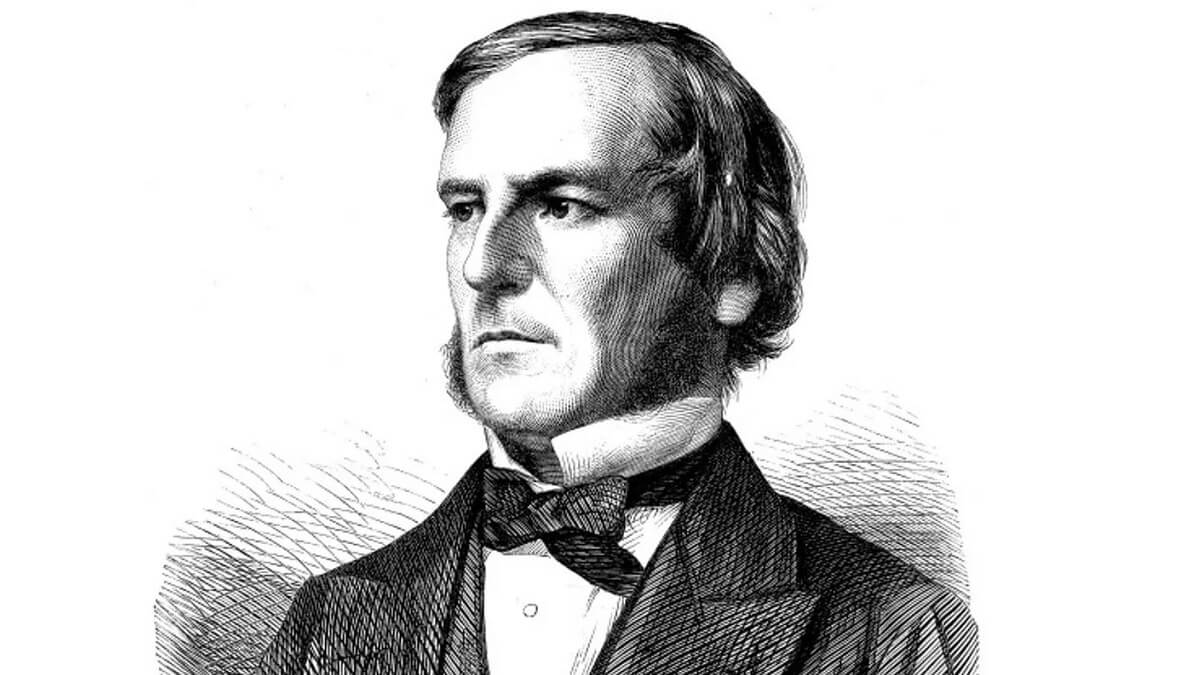
George Boole was a renowned mathematician and logician who made significant contributions to the field of computer science. Born in 1815 in Lincoln, England, Boole’s innovative work laid the foundation for modern computational thinking. His most famous work, “The Laws of Thought,” introduced Boolean algebra, a system of logical operations that paved the way for the development of digital computing.
In this article, we will explore nine captivating facts about George Boole that shed light on his remarkable life and enduring legacy. From his early curiosity about mathematics to his groundbreaking discoveries, Boole’s contributions continue to shape the way we understand and utilize logic in various fields.
Key Takeaways:
- George Boole, a self-taught mathematician, revolutionized computer science with his groundbreaking Boolean algebra, laying the foundation for digital logic and programming.
- Boole’s work extended beyond mathematics, inspiring future generations and impacting diverse fields such as philosophy, linguistics, and artificial intelligence.
George Boole was a self-taught mathematician.
George Boole, born in England in 1815, did not have any formal education in higher mathematics. He taught himself mathematics and developed his groundbreaking theories through self-study and independent research.
Boole’s work laid the foundation for modern computer science.
Boole’s most significant contribution was his development of Boolean algebra, which is the basis for digital logic and computer science. His work formed the fundamental principles behind electronic circuits, binary code, and computer programming.
Boole was the first to apply algebraic methods to logic.
Prior to Boole’s work, logic was primarily studied philosophically. Boole revolutionized the field by introducing the concept of applying algebraic methods to logical reasoning, which provided a more systematic and mathematical approach.
Boole’s book, “The Laws of Thought,” became a classic in the field.
Published in 1854, “The Laws of Thought” presented Boole’s theories on logic and became a foundational text in the field. It introduced his symbolic algebraic notation and greatly influenced subsequent developments in the study of logic.
Boole’s logic laid the groundwork for information retrieval systems.
The Boolean logic introduced by Boole forms the basis for modern information retrieval systems, such as search engines. His binary approach to logic provides the foundation for Boolean searching, where keywords can be combined using logical operators like “AND,” “OR,” and “NOT.
Boole’s work on probability theory was ahead of its time.
In addition to his contributions to logic, Boole made significant advancements in probability theory. His work on Bayesian probability, though initially overlooked, has since gained recognition and is now an essential component of statistical analysis.
Boole was a respected mathematician during his lifetime.
Despite being self-taught, Boole’s work gained recognition and respect from his peers. In 1849, he was appointed as the first Professor of Mathematics at Cork College (now University College Cork) in Ireland.
Booles’ legacy extends beyond mathematics.
Boole’s impact goes beyond mathematics and computer science. His logical principles have found applications in diverse fields, including philosophy, linguistics, artificial intelligence, and even in the design of electronic circuits.
Boole’s work inspired future generations of mathematicians.
Boole’s revolutionary ideas laid the groundwork for further developments in logic and mathematics. His work inspired prominent mathematicians such as Bertrand Russell and opened up new avenues for exploration in the field.
Conclusion
In conclusion, George Boole was a remarkable mathematician and logician who made significant contributions to the field of logic. His work laid the foundation for modern digital computing and information processing systems. Boole’s Boolean algebra revolutionized the way we analyze and manipulate logical expressions, shaping the development of computer science as we know it today.
Not only was Boole’s work influential in the field of mathematics, but it also had a profound impact on other disciplines such as philosophy and linguistics. His logical principles provided a framework for understanding the nature of reasoning and language.
It is clear that George Boole’s legacy as a pioneer in logic and mathematics cannot be overstated. His ideas continue to shape the way we approach problem-solving and information processing. His contributions have paved the way for countless advancements in technology and continue to inspire generations of thinkers and innovators.
FAQs
Q: Who was George Boole?
A: George Boole was a British mathematician and logician who is known for developing Boolean algebra, which laid the foundation for modern computer science.
Q: What is Boolean algebra?
A: Boolean algebra is a mathematical system that deals with binary variables and logical operations, such as AND, OR, and NOT. It is used to analyze and manipulate logical expressions and forms the basis of digital logic circuits and computer programming.
Q: What were George Boole’s contributions to logic?
A: George Boole’s main contribution to logic was the development of Boolean algebra. His work allowed logical expressions to be represented symbolically and manipulated using algebraic operations, enabling the logical analysis of complex problems.
Q: How did George Boole’s work influence computer science?
A: George Boole’s work on Boolean algebra provided the foundation for digital logic circuits and computer programming. His ideas revolutionized the way we think about and process information, making him a key figure in the development of computer science.
Q: What is the significance of George Boole’s legacy?
A: George Boole’s legacy lies in his pioneering work in logic and mathematics, which has had a profound impact on various fields. His ideas continue to shape the way we approach problem-solving, artificial intelligence, and information processing, making him a revered figure in the history of science.
George Boole's groundbreaking work in mathematics and logic continues to inspire and shape our world today. If you're curious to learn more about the fascinating history of computer science, check out our article on the must-know facts about ALGOL. For those interested in exploring the profound insights of philosophy, our piece on Epictetus is sure to captivate. And if you're eager to dive deeper into the captivating world of logic, our extraordinary facts about this subject will leave you amazed. Join us on this journey of discovery and expand your knowledge in these enthralling fields.
Was this page helpful?
Our commitment to delivering trustworthy and engaging content is at the heart of what we do. Each fact on our site is contributed by real users like you, bringing a wealth of diverse insights and information. To ensure the highest standards of accuracy and reliability, our dedicated editors meticulously review each submission. This process guarantees that the facts we share are not only fascinating but also credible. Trust in our commitment to quality and authenticity as you explore and learn with us.


